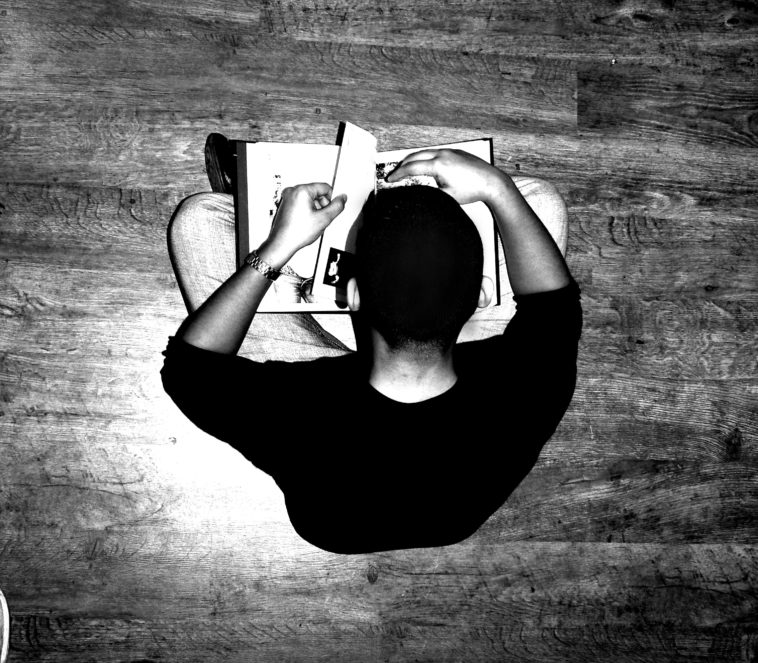Art is a word that has been misused so many times and to such an extreme extent each time that it has been stretched beyond recognition. It’s meaningless now. If a word can apply to both itself and its opposite, it loses all validity.
Art. Everyone is an artist these days.
Which does not mean that art itself, the substance, the thing that was first named “art” no longer exists, it just means that it is harder to find, at least verbally.
What is art? Beauty? Reflection of the deeper truths of life? A record of a culture preserved in a permanent medium? A way for one soul to communicate an idea to another soul without the filter of conventional language?
What is art? We can’t actually define it, because art is something we use when definitions fail, so it must, itself, defy definition.
But we can at least tell what is not art.
If a work is motivated by a commercial imperative, or if a work is fundamentally insincere, or if a work is badly done, it is not art.
Of course, there are entertainers, and there are decorators, craftspeople who create things that feel nice or look nice. Such people we call “artists” as well, and should be able to do so without judging. There is honour in an honest day’s work, and they are just as worthy as carpenters, doctors, police officers and accountants, just as worthy of being paid. But what I have to say refers to the artist, the one who is driven to it, who has no choice in the matter, you know, you didn’t chose to do this thing, it didn’t even chose you, it IS you. And even if no one was listening or watching or reading or even there, much less paying, you would still do it. You know?
Although the craftspeople, we are esteemed to be joined by you, this will also apply to some extent, to you. Please read on.
I am here today to tell you why artists in Uganda: singers, storytellers, poets, actors, directors, filmographers, players and composers, photographers… I am here to tell you why you should work for free.
I do believe that artists ought to be able to survive, to feed and be clothed and sheltered, if only so that they can live enough of a life to feed their art, for one thing about artists is that they are creatures whose primary purpose is to create, and life itself is just raw material from which they create art.
For an artist everything you go through is only meaningful if you portray it.
Yes, artists should be paid somehow, they should be paid something. But the notion that an artist will withhold their art from those who cannot pay for it, the idea of saying, “The Only Ones Who Can Consume My Art Are Those With Enough Money,” this sits very badly with me.
It feels like a heresy. It feels like a sin. Because I honestly believe art is sacred. And that is why I consider it profane to ever say, “So and so who could benefit from this art shall be refused to do so on the grounds that they are poor.”
I know artists put a lot of work, resources and time into creating their art. A lot goes into making something moving, powerful, beautiful, provocative, meaningful and unique, and if in other mundane areas of life, input is repaid by purchase, people repay you what you spent, why not with art?
But then again…
There are few things human artists make that are more moving, powerful, beautiful, provocative, meaningful and unique as a sunset. Yes, even though it happens every day somehow each sunset is unique.
Few artworks are more art than Gods’ own sunset.
And yet it is free.
And as for the effort put in, and what that effort cost the artist, a question assails me. If you think of the effort and energy, the scope of mass and motion and the amount of power expended in making a sunset you are left realising just what the word priceless means.
So yeah. Artist, if you can’t get paid, you still have to create. If there is no one to pay you, you shouldn’t then refuse to create.
But even here, on the low banal earth of ours, in our cities and our countries, even in regular commercial enterprise, even in the selling of tomatoes and boda-boda rides, things for which payment is obviously part of the transaction between creator and consumer, you will often find that the price of a thing has little to do with its value. A meal of rice, dodo and chicken stew is of much greater value than a bacon cheeseburger with masala chips, yet the latter costs three times as much as the former.
When all the factors are considered, when all the numbers are considered, when we come down to the base of the matter, a price is merely the point at which how much customers are willing to pay meets how much traders are willing to take.
And now, I return to why artists should work for free.
You guys, your audience is not willing to pay for your art. I have listened to amazing music and read profound prose from Ugandans. But usually streaming off the net, or on a blog. I don’t pay for it. Or from TV. Or the radio. Or some exhibition I wandered around for free.
I mean, I would. If I had a salary of 482 million shillings a month after taxes, I would pay MoRoots, Ninja Cee, Omara, that guy who did the Luganda poem at Aka Dope, Baingana and Akol five million shillings each month for one piece of work each. And I wouldn’t even think I am paying what it is worth.
But the way that would end up, unless I keep the art to myself, as the only one to read, hear, watch or consume it, the way this would end would not be me being a customer buying a piece of art, it would be me being a patron, paying to enable the artist to survive and create while worrying at least five million shillings less about how to stay alive.
Meanwhile, the rest of you who continue to consume for free will have the benefit of at least one piece of new work a month.
I will be a patron, a sponsor of the arts, not an audience, not a customer.
So in essence, the artist still gave the audience the art for free.
The modern generations, the children of Mass Media learned to consume art through TV, and radio and newspapers, which in all but the latter two meant getting it for free.
And newspapers only put anything artistic in there to make you buy the news.
But TV stations and newspapers and radio stations were not in the business of buying talent and selling it to audiences. Actually, and this is where the lock goes clink and shuts the door finally and firmly closed, the commercial mass media was actually in the business of buying audiences and selling them to advertisers.
The result of that is something we have heard many artists complain about. The fact that what they consider weak, mediocre, uninspired, unchallenging, cliche work gets more money than what they consider “real” art.
Pop music and pop TV and pop movies are easier to consume, so will be consumed more, and so will gather a larger audience, which will be sold more easily to advertisers.
That’s how it worked. If a piece of “art” were to make it to TV, radio or cinema, it had to also appeal to a large audience, or would not be bought by the mass media enterprise.
This meant some artists had to “Sell out”, or compromise their vision to appeal more. To others it meant just staying true to your vision, keep doing you, and maybe, somehow, coincidentally striking that elusive lucky chord that resonates with enough people to make you worth the money.
There’s the rub. It is not your art that makes you worth the money, it is the “enough people.”
That is why artists in Uganda should work for free.
Musicians have done it. From the early haharing days of Chameleon walking to Kaos on foot to sing for free, to Chameleone taking a first-class plane to Boston to sing for millions, the difference was not that he sucked then… He was really good. He was. Him and his peers built an industry diligently, with their years of sacrifice, they wore holes in their shoes walking to venues, to build an audience that would finally have Bell Lager interested.
But among actors and filmmakers dramatists and writers, few has yet gotten a large enough audience to be worth the big bucks. If you are only worth as much money as the size of your audience, the very best of us may be priceless but are also worthless.
The good news is that now, more than ever, we have the capacity to get that audience.
But first, we should appreciate, that our talent, art and work are not worth money to Moloch. They are worth attention, worth consideration, worth remembering, worth sharing, worth the lives they touch and change, but not worth money.
If you want to be paid, then you need to have an audience to sell.
But now more than ever, artists have the capacity to get that audience. The internet is becoming more and more pervasive. When I first started blogging, only a few people had internet phones, and it was WAP. If you remember WAP, you old codger. A tumbler of Ale. Cheers to the years. But today, I had to tell my boda to put away his tecno and drive instead of trying to read his whatsapps on the move.
We complain about data costs, but broken down, people are actually buying and using more internet than they ever have. Those people? That’s your audience waiting for you to gather them. Once you have enough of them, you are finally worth money.
And how do you get them? Work for free.
Blog on WordPress and let us read you, love you become fans of you, share around and grow your numbers until you are Bikozulu and can get paid to write.
Post on youtube and let us watch, subscribe, like and share until you have Anne Kansiime’d enough views for someone to pay you.
And also work together. I believe in rivalry you guys, I believe in competition, even in art, especially if it forestalls false camaraderie and fake smiles — art must be honest and sincere or it is just another sideshow; if you hate a guy’s work you should be able to say so to his face — But if we can, we should be able to work together. Because building an industry is something we all benefit from.
Uganda is at a very fertile point. This is where we sow the seeds of what is going to be a great thing.
This internet will soon figure out how to make money. I think here, the third world, Africa especially, is where it will happen. We are going to overleap the missteps the West made, spurred on by this one success– Phone Banking. Is it American mobile phone companies which found out how to use a phone to make money by selling money?
This is the frontier. I think it will be mobile companies realising that they are not in the business of selling airtime primarily and selling data secondarily but the other way round and they will want to support anything that requires the purchase of more data. After Mobile Money we will have phone companies will invest in Netflix-like enterprises.
Don’t worry. You already bought DSTV dishes to pay for TV and yet still watch all your shows on your laptop. You are just about to become more.
Or production houses will stop trying to sell to traditionally, selling the mass media their content, but will instead just send it directly to your phone, like, “Log on to UgandaLols.ug and watch your favourite content. It could be sponsored, it could be subscription, whichever. It could be this aspect of advertising that has suddenly surged.
People like to say audiences don’t like commercials. That’s not true. Audiences don’t like bad commercials, but look at blockbuster movie season in the past few years. Pretty much every big fat hit movie has been a commercial. I am typing this on a Chromebook with a Mjolnir-Themed laptop skin.
And because the netcasting platform is so much less costly than TV and radio and newspapers, they will not just gather more audiences, they will undercut traditional media in costs.
But either way, there will be commercial entities looking to pay artists for work. And they will pay the ones with the audience. What you need to do now is be one of those people with those big audiences.
Put your stuff out there for free.
It will pay off soon enough.






